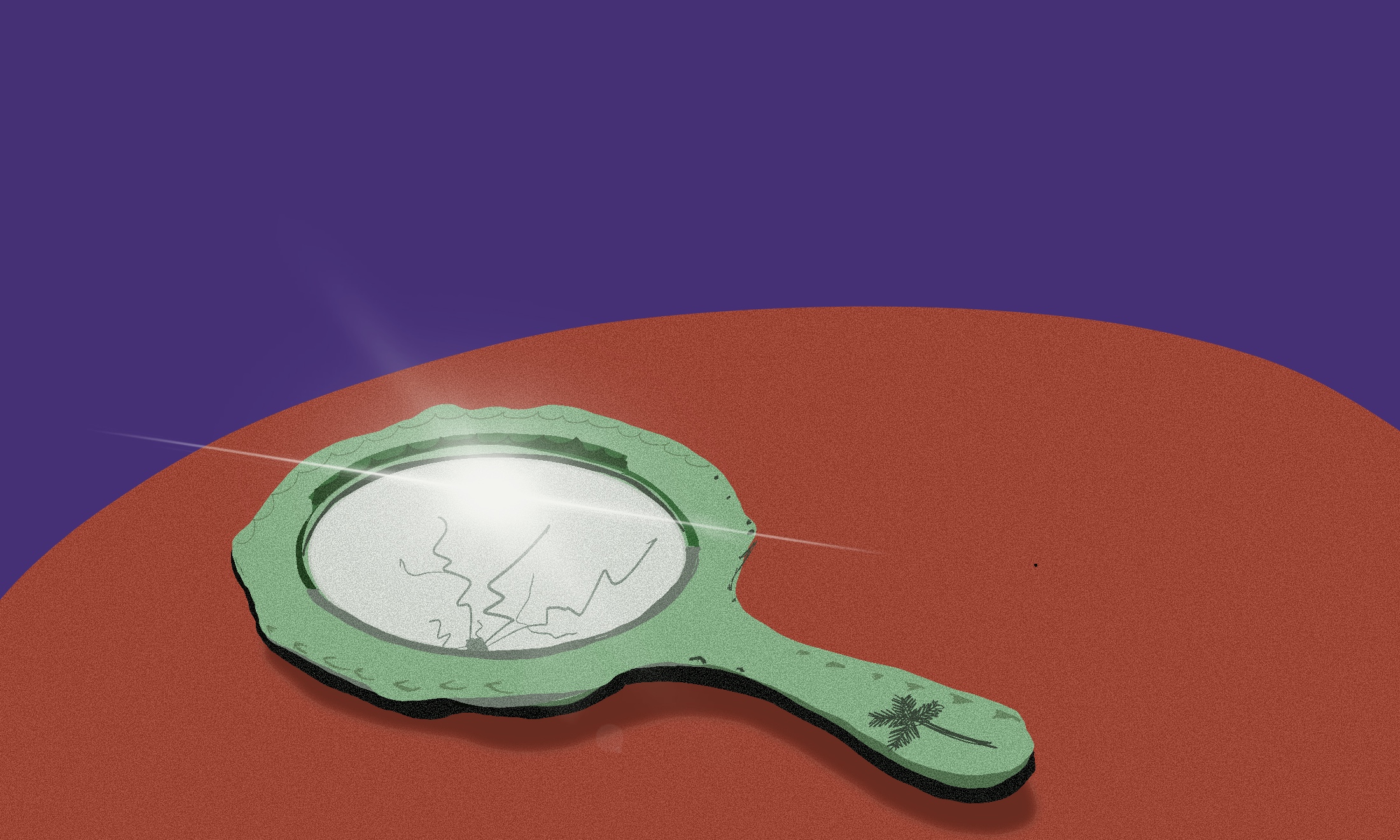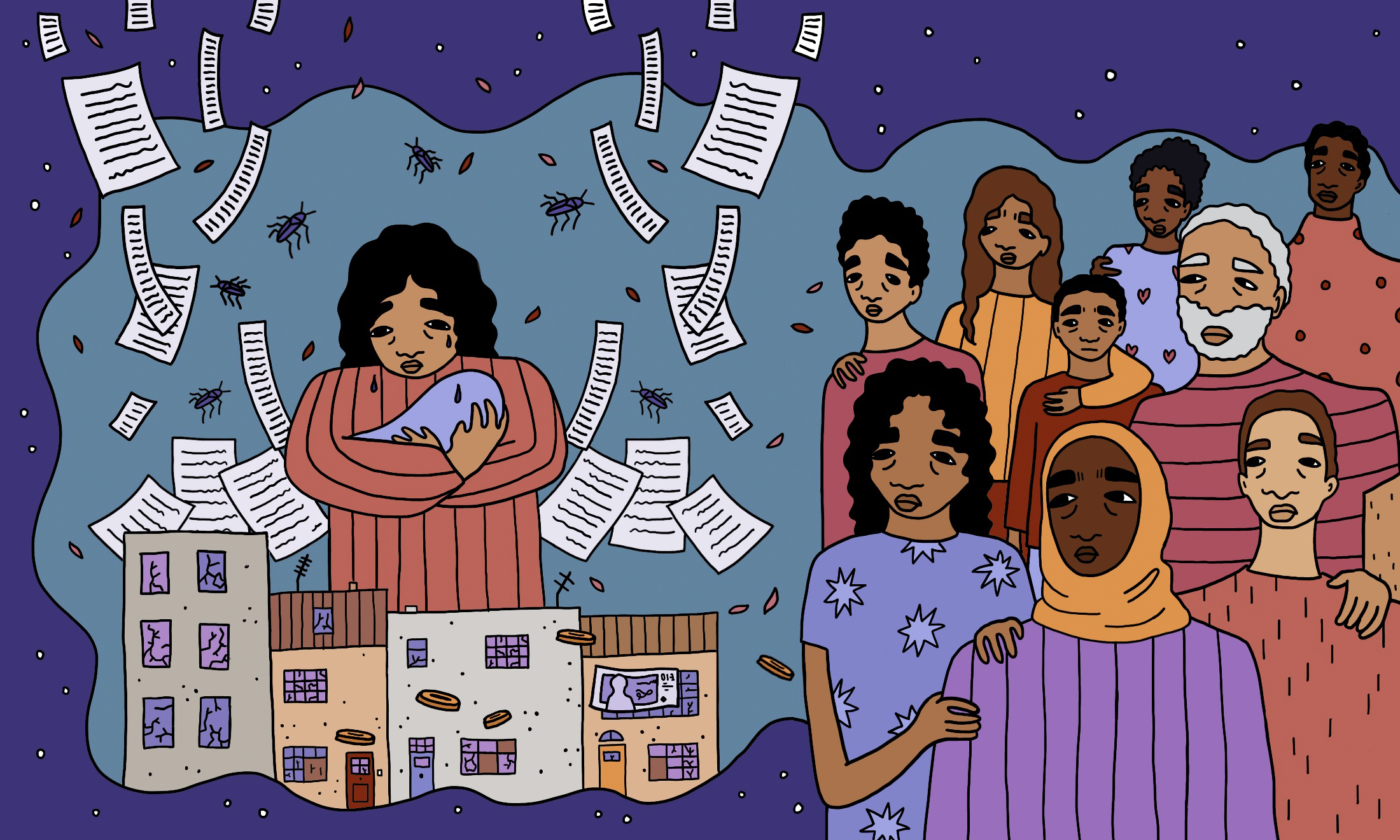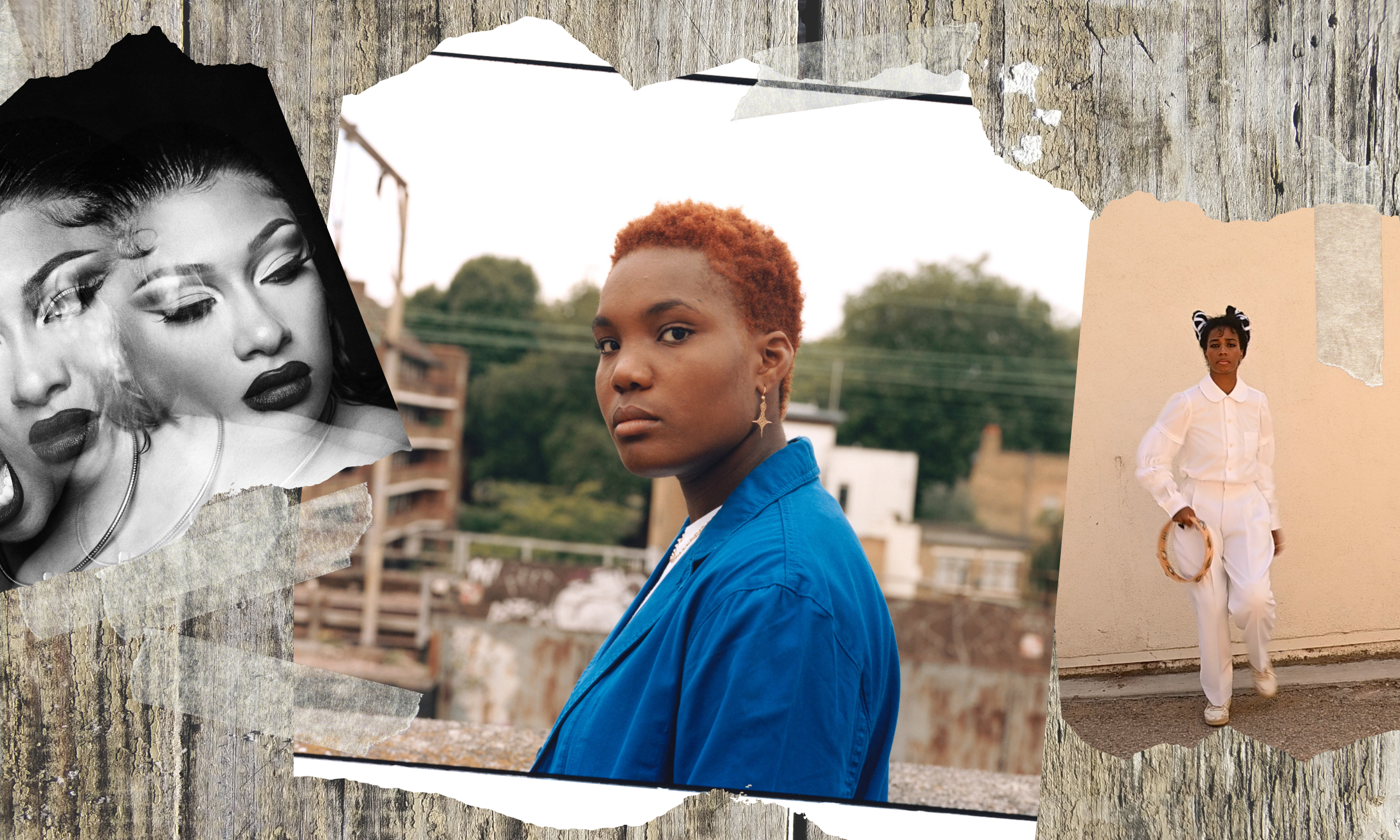I’m tired of chasing old versions of myself
On re-examining my relationship with the past.
DiyoraShadijanova and Editors
23 Dec 2021

Diyora Shadijanova
Content warning: body dysmorphia, disordered eating, depression, fatphobia
When I’m alone and become exhausted by social media’s persistent need to interrogate the deepest parts of my brain, or society, I like to scroll through the photos on my phone. These photos show me the lives I’ve supposedly lived; the experiences I am meant to know well. These are the stories I refer to at dinner parties or first dates. The stories I am supposed to tell my descendants about my youth. In these photos, taken in batches of ten or more at a time, I am always smiling. Smile. Smile with teeth. Smize. Smile in a carefree way. Smile with cheekbones sucked in. Smile.
The act of looking back, or reflection, can be a useful thing. It’s natural to grow up and think of what a fool you were for pining after someone who wouldn’t even give you a crumb of attention. Or how that ‘toxic’ friend from childhood you’ve told everyone about actually had deep insecurities and maybe – being painfully honest with yourself – you liked playing the victim a bit too much in that dynamic. But when you have a habit of falling into periods of self-loathing, looking back can also make you want to chase old versions of yourself. “Look how happy and carefree I was”, you convince yourself when low. “How do I get that back?” The grass is always greener in the past.
As we spend more time indoors due to the pandemic, this urge to look back to ‘happier times’ has never been greater.
“The grass is always greener in the past”
There is one picture that often comes up from 2018. I’m sitting in a camp chair at a music festival with tents in different shades of khaki surrounding me. Sunlight crosses my face as I laugh and my freshly-cut, henna-dyed hair sways in the wind. I have bright blue eyeshadow on. I’m wearing a black crochet top from Primark and a leopard print shirt from Topshop. In this photo, I look tiny. I still remember my weight: 59 kilograms. I had stopped eating for about a month because I suffered two consecutive losses of romantic partners in the space of six months. One was a death and another one was a blindsiding breakup. As I drastically lost weight, people told me I looked really good.
I also remember posing for this exact picture – how much I refused to have it taken. After my friend handed my phone back to me, I grimaced at the different photos of me in the chair and decided that I was indeed ugly, which is why I deserved all the bad things that had recently happened. The image, however, was clearly good enough to post on Instagram the following Monday. I captioned it: “A lot of fun was had bc blue eyeshadow is a LOOK.” Despite spending the whole weekend getting soaked in the rain and crying in my tent, I had retrospectively created an entirely different narrative. If the stories we tell ourselves about ourselves are the ones we remember, why not just lie?
The surreal fact is that many of these kinds of photos in my camera roll have similar origins. Whether they capture memories from college, university or just a few years ago, in the moment, I had persuaded myself that my existence had culminated in looking the worst it ever had. Yet with distance and time, I began to admire the way my hair fell on my shoulders, the way my teeth seemed straighter because I still wore my retainers. I liked how tanned I was, showing off all the different suns I caught on my skin that year. If anything, it’s proof that one’s relationship with their image is never stable and is constantly determined by external, ever-changing factors. Looking back on it all now, I’m trying to appreciate the way I physically presented myself to the world while acknowledging that it often felt like a performance.
“If the stories we tell ourselves about ourselves are the ones we remember, why not just lie?”
I’m not going to blame the people who complimented me for looking well during a season of malnourishment, because I’m certain that I’ve always struggled with body image due to some kind of intergenerational, cross-cultural obsession with weight. Sometimes, elders around me lovingly portioned my food which only hollowed out my child-sized stomach even more. The scales were a lifelong presence in the bathroom growing up, and no matter how many times I have tried getting rid of them in adulthood, they’re still shamefully stashed in the back of my wardrobe. I can’t let go. I get them out on bad days when I need to feel control. Considering the accumulation of sources who have hinted that there was simply too much of me, it’s easy to see why at times I thought I should just disappear altogether.
These pictured younger versions of me are always lighter than I am now. When I look at them, I know exactly how much I weighed at the time. The numbers on my scales are clear as day. 56 marked the weight of my teenage body during the pre-uni era of bodycons and nights out in local clubs. 63 looked quite good but I had that weird rule to stop eating at 5pm. 65 was when I started going to the gym to get stronger (grow my butt), though was logging every single calorie. 68 was when everything fell apart, so anything above that weight on my body – my existence for the past three years – sometimes doesn’t feel good enough.
Of course, I don’t think it’s acceptable to see another person through the prism of their weight or body shape, or believe that our entire lives should be dictated by the number on the scales. But when it comes to my own body, it’s hard to shake off the dysmorphia and internalised fatphobia. Having sporadically practised ‘self love’, done lots of ‘unlearning’ and gone to therapy about this specific issue, at times I feel like I’ve gotten nowhere. I understand now that I may simply need to stop looking at those pictures and cut this weird obsession of romanticising my past altogether. That is, at least until I develop a more honest relationship with my body and myself.
“How do you learn to accept yourself now, without rejecting and invalidating all those versions that came before?”
In popular culture today, we love talking about the body-shaming narratives that have permeated our brains and how we should reclaim them in an act of defiance. But narratives feel easier to override than tangible representations of yourself, so our relationship with pictures is harder to disentangle. How do you love yourself when you know that photographic representations of you are mostly inauthentic? How do you learn to accept yourself now, without rejecting and invalidating all those versions that came before?
I think it’s about forgiving yourself for seeking validation in places it can never be found. I might question if the smile in those pictures was truly mine, but it’s okay if it wasn’t. This idea that our physical bodies should determine everything that happens to us – though isn’t necessarily untrue in a society built on competition and constructs – will never be liberating.
The real issue lies in my application of the same flawed framing as I look at those photos again and again – that how I look should somehow correspond to how I feel about myself (the rise of image-sharing social media sites has played its part, I’m sure). Perhaps it’s only when I start seeing my body as a physical vessel of my spirit, and not the be-all and end-all, that I can break out of my own mental prison.
“I think it’s about forgiving yourself for seeking validation in places it can never be found”
I wonder if the answer lies in not just rewriting the narrative around having to love our bodies, but transcending these narratives entirely – some refer to this as body neutrality. Or maybe it’s that I stop smiling in pictures when I feel unhappy altogether, so I don’t romanticise moments that never existed in the future. There is only so much we can control: I can try reducing my triggers, processing my emotions wholly without blaming myself and even ‘transcending’ beyond worrying about all of this, but I’m only human.
Whatever the answers are, and many of my questions remain unresolved, they have to be rooted in forgiveness and understanding. The photos were never the problem, but the unhappiness of the person in them. So next year, instead of feeling the same pressure to participate in restriction and punishment just so I can ‘look good in pictures’, I want to focus on what truly makes me happy and feeds my soul. That way, I’ll at least know I’m not lying when I smile at the camera.








